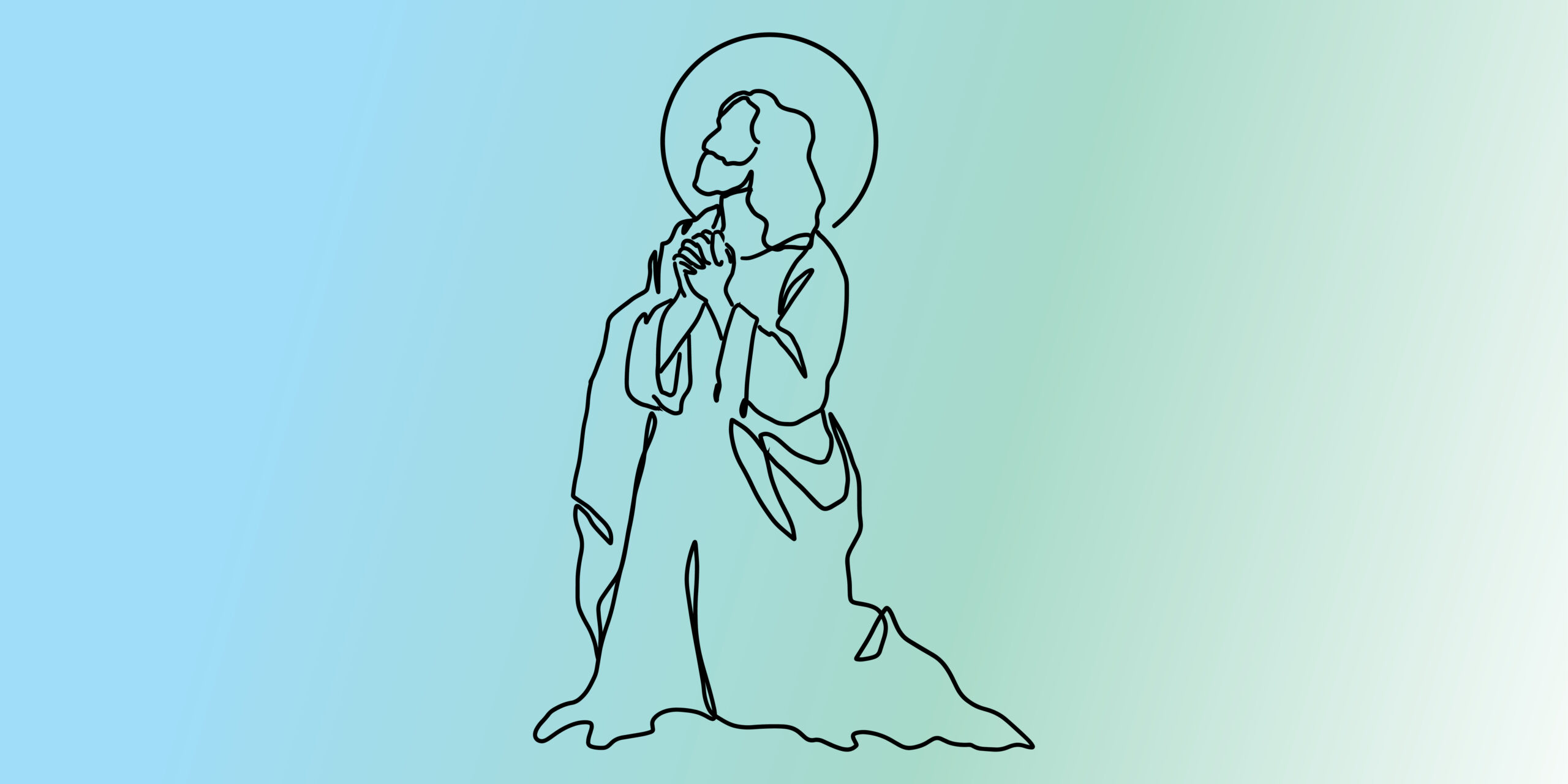Originally published in the GIA Quarterly, Volume 34, Issue 4
A Season in Which to Know God
Leisa Anslinger
For pastoral ministers, every season holds an invitation to ponder the paschal mystery while addressing the tactics of liturgical preparation and celebration, parish leadership, and pastoral care. The spiritual and ministerial aspects of our lives become out of balance at times, with details winning out over the hopes and desires of our hearts.
This is perhaps more likely at Christmas than in any other liturgical season. We often acknowledge the challenge of celebrating Christmas throughout the season when the world around us began singing carols in early November and has “been there, done that,” with decorations in their boxes by December 26! This is not the only challenge, of course.
The season is also often filled with memories and images of Christmases past and a myriad of social gatherings and gift-procuring in the present, leaving us with little physical, emotional, or spiritual space to appreciate the richness of the season. It may feel that there is no room for Jesus in the inn of our hearts, hence these brief reflections. Consider what follows a springboard for prayer, so that we may know God anew and more deeply in this season of grace.
Nativity
God who meets us in our vulnerability
That God came to be one with us in the Incarnation is one of the great mysteries of our faith. That God took human form as an infant, entrusting God’s plan to humans, is beyond our comprehension. In the Nativity of Our Lord, we ponder the audacity that God became vulnerable, powerless, dependent upon the care of Mary and Joseph, the people of Bethlehem who assisted them, and countless others in the early years of Jesus’s life. Emmanuel who came among us as a frail child is with us when we are weak and in need.
At Christmas, we remember again that the baby in the manger is God, who is not distant or absent but, rather, desires to be close to us and to all. Jesus, Emmanuel, is light in the darkness, consolation to those for whom there is no room, those who rely on the care, however simple it might be, of others. Christ is especially near to those who are most vulnerable, and we who are disciples of Jesus Christ must be near to them as well.
Holy Family
God who knows we need one another
Jesus was born into a family. God, being God, could have come as a man wielding power and authority. But in God’s infinite wisdom, Jesus was born as a child into a family. While we know Jesus, Mary, and Joseph as the Holy Family, we also see in the gospels that holiness did not shield them from difficulties. Rather, the Holy Family met the challenges they faced through faith and faithfulness. They put their trust in God as they journeyed together in perilous and uncertain times, rooted themselves in prayer and religious tradition, and quietly grew in grace with one another.
The Holy Family bears witness to God who knows we need one another. Jesus was not born in isolation or alone. He was born into a relationship of love. At their best, our relationships point to the love of the Trinity, Father, Son, and Holy Spirit. Not all are born into families that are holy. Many mature without the love and care we see in the infancy narratives of the gospels. As we listen for and answer the Lord’s call to holiness, may we, too, meet the circumstances of our lives through faith and faithfulness, certain that God, Emmanuel, is with us.
Mary, Mother of God
God who calls each of us to bear Christ
Before the announcement of the angel, Mary was an insignificant small-town girl. It is easy to imagine her proceeding through her daily life as did all young women of her time, going to the well each morning to gather water, assisting her mother with meals and household tasks. After the angel and her assent to God’s plan, Mary became the Mother of God, the most significant woman in the history of the world.
While set apart by her singular grace and goodness, we have everything to learn from her. Like Mary, we are entrusted with the spark of divine light; as Mary did throughout her life, we too must reflect upon the mystery of God’s love in our hearts; with her, we are to seek and do God’s will. While we know Mary as the blessed one, full of grace, we should, in the words of St. Elizabeth Ann Seton, be prepared to meet our grace each day. Through the incarnation of Mary’s son, our Lord Jesus, we see that none are insignificant; each of us is called to bear Christ’s light and love into the world.
Epiphany
God whose vision of redemption is greater than we can see
The Magi had traveled from the east, seeking the newborn king. They likely expected the child to be born into royalty, with all the trappings of kings and their entourages. Their experience of Herod would certainly have reinforced the common expectations of the rulers of their time. The contrast between Herod and Jesus is striking. Following the star to Bethlehem, the Magi were likely surprised at the sight of the infant whose humble birth pointed to a kingdom like no other.
St. Peter Chrysologus captures it well: “The Magi are filled with awe by what they see; heaven on earth and earth in heaven; man in God and God in man; they see enclosed in a tiny body the one whom the entire world cannot contain.” The Magi had an epiphany; their seeking had led them to God’s very self. They disregarded the earthly authority of Herod, leaving Bethlehem changed. They returned to their country by another way, signaling the expansion of God’s plan of redemption to all peoples.
Baptism of the Lord
God who immerses us in grace, calling us into mission
Jesus was baptized by John at the Jordan, not because he needed forgiveness but to “fulfill all righteousness.” Jesus is the servant of whom Isaiah wrote, the one who brings forth justice, light, sight, and freedom. In this early moment in Jesus’s ministry, he points to the greater purpose of his life—to manifest the love of God and bring new life to the world.
As Jesus arises from the waters of baptism, the heavens are opened, not only in this solitary moment but for the ages. Through the waters of baptism, we are immersed in grace, plunged into Christ’s life, imbued with the Spirit, and called into the mission of Christ to bring justice to the nations, light in darkness, and freedom from confinement.

Leisa Anslinger brings extensive experience in Catholic parishes and schools to her ministry as an author, presenter, and coach who focuses on stewardship, parish engagement, and servant leadership development. She currently serves as a Parish Vitality Specialist for the Archdiocese of Cincinnati.







